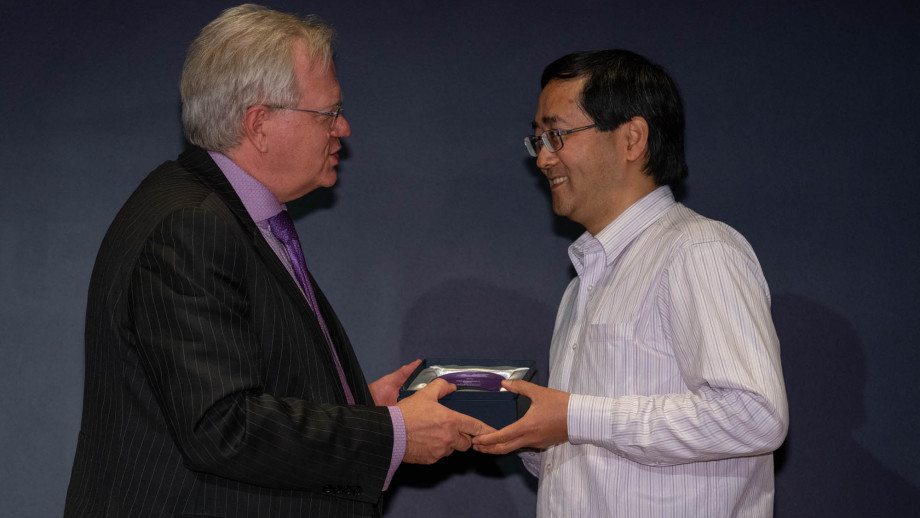Dr Zongyou Yin - Vice-Chancellor's Award for Early Career Academics

Dr Zongyou Yin is a rising star in the broad area of two-dimensional (2D) materials science at the ANU Research School of Chemistry (RSC).
He is best known for his demonstration of the world's thinnest phototransistor with one atomic layer of molybdenum disulphide semiconductor (MoS2). The work, published in the international nanoscience and nanotechnology communication journal ACS Nano, has received over 2400 citations and sparked a new research field.
Dr Yin solved one of the key challenges facing applications of 2D materials: their stability. He has brought them closer to practical application through his innovative finding of waterproof molecular monolayers to stabilize them.
In his recent work, accepted by the materials science journal Advanced Materials, he developed a scalable accurate method to prepare the atomic layer of 2D materials, which will benefit commercialisation of these materials.
Dr Yin has recently invented diamond transistor devices that exhibited super-stable performance, demonstrating that 2D materials can be suitable for application in spacecraft and car engines.
He has published over 110 publications and nine international patents and with more than 20,000 citations at an h-index of 56, and is the RSC's only Highly Cited Researcher. The impact of his work is far reaching - from renewable fuels to smarter electronics. He has received significant media attention, which has led to his active involvement in the ANU Climate Change Institute and the ANU Energy Change Institute.
His passion for research is also reflected in his teaching. Since joining ANU in early 2017, he has developed and taught two undergraduate courses on materials, and has rapidly assembled a large research team of students, postdocs and international visitors.
Prior to receiving his award at the Vice-Chancellor's Awards, Dr Yin was asked to respond to a series of questions. His responses are below.
Q: Congratulations on being nominated a finalist for the 2019 Vice-Chancellor's Annual Awards. Can you briefly tell us what this honour means to you?
A: This award recognises my past research, encourages and validates the potential success of my future research in the international arena.
Q: Tell us a little about the behind-the-scenes work involved in the project you worked on. What was a challenging aspect of the work? How did you overcome this?
A: Our research is at the forefront of a few research areas. Some challenging work, e.g. local surface plasmonics, requires international collaboration. I overcame it by building collaborative international relationships.
Q: Where is your favourite place on campus?
A: Currently it is my office, and I hope it will be the new swimming pool in the near future.
Q: Why Canberra? Why ANU?
A: ANU is both a quiet and a vibrant university. I love both.
Q: Can you tell us a little about why you are so passionate about what you do?
A: Research is a very important part of my life. I am always enjoying it, which might be the reason for my passion.
Q: Is there anyone you would like to recognise for helping you become a finalist for the 2019 Vice-Chancellor's Annual Awards?
A: I need to thank many people for helping me in different ways to help me become who I am today.
